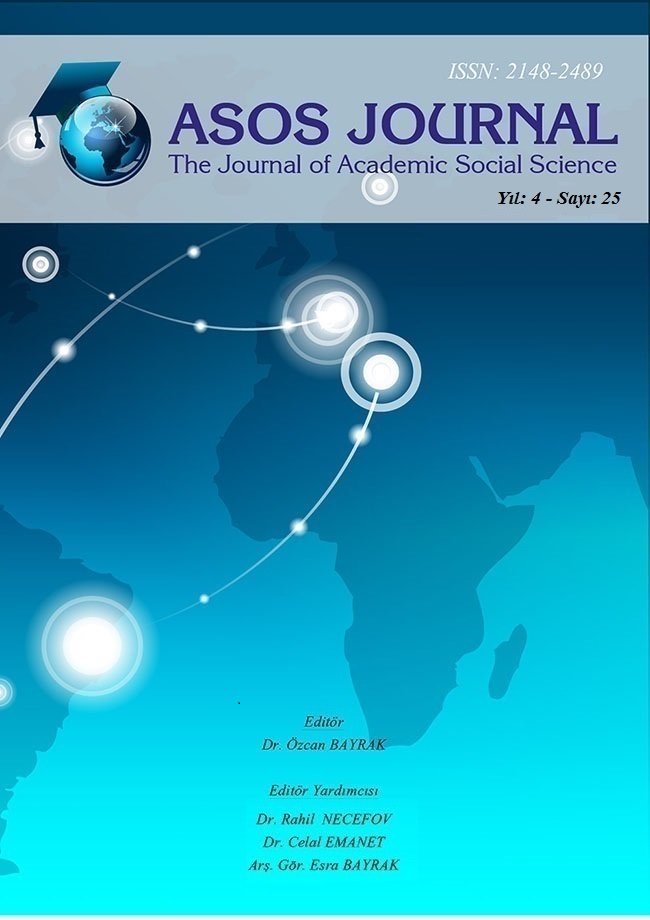Author :
Abstract
Dünya genelinde ulus-devletler ve etnisiteler arasındaki ilişkilerde zaman zaman şiddet dozu da yükselebilen krizler ortaya çıkmaktadır. Bu bağlamda sorunu anlamaya yönelik olarak analiz; etnisite, ulus-devlet ve ulus gibi yapıları eleştirel bir bakışla modern yapılar olarak ele alarak sorunun temelinde sistemik yapısal gerilimlerin ve çevrimsel krizlerin olduğu iddiasındadır. Yöntem olarak çevrimsel krizlerin zaman-serileri ve etnik sorunların krize dönüşme süreçleri arasındaki paralellikler tespit edilmeye çalışılmıştır. Yeni bir etnisite olarak Quebec sorununun nispeten eskiliği zaman serilerinin çevrimlerle olan paralel seyri izleme imkânı da sağlamıştır. Sonuçta analiz; Quebecli elitlerin çekişmesinin ardında burjuvalaşma ve sınıf-içi çatışma süreçleri ile hegemonik ve Kondratiev çevrimleri arasında bir uyumluluğu göstermiştir. Bu tespitin diğer devlet etnisite çalışmalarına da ışık tutması muhtemeldir.
Keywords
Abstract
The crises between ethnicities and nation-states are spreading and escalating around the world. The study aims to understand the dialectical relationship between these parties using a critical approach. The claim is that the tensions between them are arising from the system's structural problems. A comparative time-series analysis is used to test this assertion. The method aims to find out if any connection exists between the time series of the systemic cycles and the elite conflicts of the entire ethnicity. Quebec's new ethnicity made this application much more identifiable and traceable with the historical remarks. The study shows that the backstage of Quebec's elite competitions is part of the bourgeois and class conflict, which also has some equal time overlapping with the hegemonic and Kondratiev cycles. This framework might lead to other studies related to nation-ethnicity perspectives.





